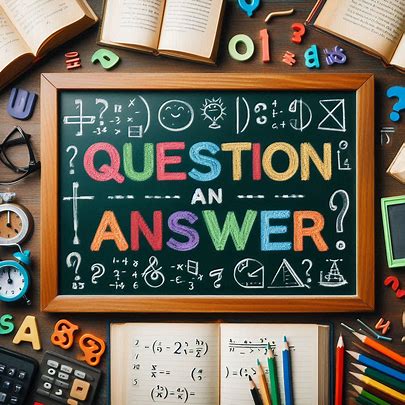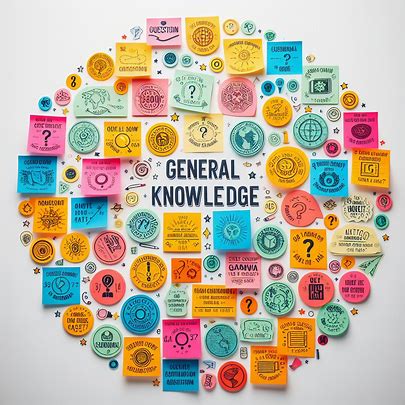Tick the Correct Answer Questions: A Comprehensive Guide
Table of contents
- Tick the Correct Answer Questions: A Comprehensive Guide
- Introduction
- What are “Tick the Correct Answer” Questions?
- Understanding “Tick the Correct Answer” Questions
- Why are “Tick the Correct Answer” Questions Important?
- Conquering “Tick the Correct Answer” Questions in Science:
- Download Questions and Answer – Click here
- Tips for “Tick the Correct Answer” Success
- FAQs About “Tick the Correct Answer” Questions
- Conclusion
Introduction
“Tick the Correct Answer” questions are a staple in assessments across subjects and grade levels. Whether you’re preparing for a math test, a science quiz, or an English exam, mastering these questions is essential. In this blog post, we’ll explore what these questions entail, how to approach them effectively, and some common FAQs.

What are “Tick the Correct Answer” Questions?
“Tick the correct answer” questions, also known as multiple-choice questions (MCQs), present a scenario, statement, or problem followed by several answer choices. Only one answer is deemed correct. These questions assess your understanding of key concepts, ability to analyze information, and critical thinking skills.
Understanding “Tick the Correct Answer” Questions
- What Are They?
- These questions present a set of options, and you need to select the correct one.
- They often appear in multiple-choice format.
- The challenge lies in identifying the accurate choice amidst distractors.
- Strategies for Success
- Read Carefully: Pay attention to keywords and context. Sometimes, subtle differences can lead you to the correct answer.
- Process of Elimination: Eliminate obviously incorrect options. Narrow down your choices.
- Use Prior Knowledge: Rely on what you know. Trust your understanding of the topic.
- Check Units and Quantities: Especially in science and math questions, ensure consistency in units and quantities.
Why are “Tick the Correct Answer” Questions Important?
MCQs offer several advantages for educators and test-takers:
- Efficiency: They allow for quick and efficient assessment of a broad range of knowledge.
- Objectivity: Scoring is straightforward, minimizing bias and ensuring consistent evaluation.
- Comprehension: Analyzing various answer choices promotes deeper understanding of the subject matter.
Conquering “Tick the Correct Answer” Questions in Science:
Science heavily relies on MCQs to evaluate students’ grasp of scientific concepts, data analysis, and problem-solving abilities. Here are some effective strategies to ace these questions:
- Solid Foundation: Ensure you possess a strong understanding of the core scientific principles being tested. Textbooks, class notes, and online resources can solidify your foundation.
- Active Reading: Read the question carefully, including any diagrams or data presented. Identify keywords and pinpoint the specific scientific concept being tested.
- Scrutinize the Answers: Analyze each answer choice critically. Look for inconsistencies, obvious errors, and options that contradict scientific laws.
- Elimination Technique: Start by eliminating answers you know are incorrect. This narrows down your choices and increases the likelihood of selecting the right answer.
- Logical Reasoning: Use your scientific knowledge and reasoning skills to eliminate implausible options. Look for answers that best support the provided information or data.
- Unit Consistency: Pay close attention to units in scientific MCQs. Ensure units in answers are compatible with the provided values.
- Dimensional Analysis: This technique involves analyzing the units of each answer choice in relation to the question. The answer with units that make physical sense is more likely to be correct.
- Educated Guessing: If you’re truly stuck and no answer seems perfect, take an educated guess based on your scientific understanding. However, prioritizing strategies 1 through 7 is crucial.
Download Questions and Answer – Click here
Tips for “Tick the Correct Answer” Success
- Identify Question Types: Be aware of different types of MCQs, such as “best fit” questions where you choose the closest answer or “all of the above” questions where multiple answers might be correct.
- Beware of Common Mistakes: Be cautious of answer choices that seem too broad or introduce new information not presented in the question. Similarly, avoid answers that repeat the same information phrased differently.
- Manage Time: If time is a constraint, prioritize the questions you are most confident about. However, avoid spending too much time on a single question; revisit it if time permits.
- Practice Makes Perfect: Regularly practicing MCQs from past exams or study guides can significantly improve your test-taking skills.
FAQs About “Tick the Correct Answer” Questions
- Q: How do I avoid falling for distractors?
- A: Stay focused on the question stem. Distractors often play on common misconceptions or minor details. Trust your knowledge.
- Q: What if I’m unsure about the answer?
- A: Make an educated guess. Eliminate unlikely options and choose the one that seems most reasonable.
- Q: Can I use a calculator for math-related questions?
- A: If allowed, definitely! But remember to double-check your calculations.
- Q: How can I improve my speed in answering these questions?
- A: Practice regularly. Familiarity with question patterns enhances your speed.
- Q: What if I’m unsure about all the answer choices?
- A: If you’re genuinely unsure of the correct answer, use an educated guess based on your understanding of the subject matter and process of elimination. However, prioritize using the strategies mentioned above to arrive at a more informed answer.
- Q: Is it okay to change my answer on a “tick the correct answer” question?
- A: Absolutely! If you have time, review your answers and make necessary changes if you discover a better fit after considering other questions.
- Q: Are there any online resources for practicing “tick the correct answer” questions?
- A: Several websites and apps offer practice tests and question banks categorized by subject. Utilize these resources to enhance your MCQs skills.
Conclusion
Mastering “Tick the Correct Answer” questions involves a blend of critical thinking, subject knowledge, and strategic decision-making. Keep practicing, and soon you’ll be ticking the right boxes with confidence!






